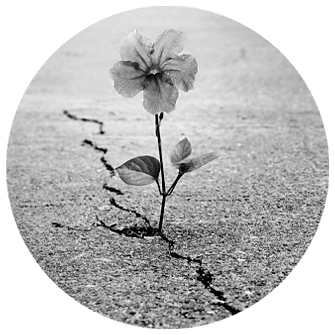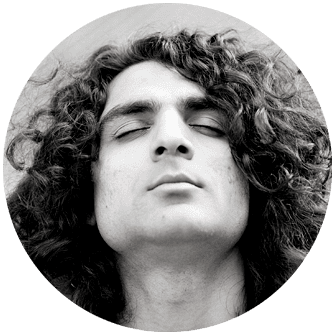Transcending Addiction
By Kanjara Ishaya
In this short article, I aim to share some insight into how practising the Ishayas' Ascension meditation may help people heal from addiction, and experience more peace and happiness. Any insight I share is drawn from my personal experience. I hope this excellent practice finds you and enriches your life as it has done with mine.
Firstly, it is essential to clarify that transcending addiction through meditation and conscious awareness may not be the best approach for people still in active drug and alcohol addiction, as the ability to cultivate alertness and awareness, the essence of meditation, is impaired.
I think it is a transformative and healing practice for people who have embarked on a recovery programme and those who are in active addictions that do not diminish cognitive function and mental clarity.
My Journey From Addiction To Freedom
I feel well-placed to discuss this topic. After being heavily addicted to alcohol and drugs from the age of 15 to 25, I have been a spiritual seeker in search of peace, contentment, and freedom for nearly 25 years.
Everything changed in a very profound and magical way around ten years ago when I learnt to Ascend (what we call using the Ishayas' techniques).
Until then, even though I had been dedicated to the path of self-discovery, I still felt dissatisfied with my life. I was still enduring self-deprecating thoughts, and feelings of fear, remorse, shame and guilt. I felt restless and uneasy without knowing why. I was still looking outwards for satisfaction, was still critical of myself and others and overly concerned with myself.
Since learning to Ascend, these blocks to my peace have fallen away with remarkable ease and efficiency. This simple, powerful practice teaches us to rest our attention beyond thought. A sea of silence exists within us, available at any moment to receive our attention. The more I learn to rest my attention here, the greater the peace, freedom, and happiness I have experienced.

Addiction May Not Be As Complex As We Fear
It is difficult to make any distinctions about addiction in such a short piece of writing since the origins of how it manifests in a person are complex and varied. Generally speaking, I would say that two main factors fuel addiction.
Firstly, by a deep-seated sense of incompleteness and lack, of not being whole. Secondly by, chronic and unrelenting thought, largely negative in content, which reinforces this sense of incompleteness.
An addictive process occurs when we seek gratification and satisfaction in things external to us to try and compensate for this inner discontent but end up feeling more isolated, more fearful and out of touch with ourselves. This drives us to seek fulfilment outside of ourselves again, repeating the cycle.
Experiencing Reality Beyond The Limited
Ascension can effectively heal addiction because it leads us to a direct experience of a very different reality. The idea that we are inherently lacking, broken or unworthy is a grand illusion. The complete opposite is, in fact, true. We are whole, unbroken and complete.
We can experience this reality with ease by resting our attention within. Beyond the realm of thought, there is a still and silent presence, rich and alive, profoundly absorbing and all-encompassing, full of joy and peace.
Fear and any form of lack could not possibly exist here. In my experience, the more present I have become, the less I have felt the need to seek gratification outside of myself. Learning to rest in my true self has been life-changing. I no longer experience any sense of lack or unworthiness - I now have an ongoing experience of feeling whole and complete.
Something else magical happens as we learn to rest our attention in the silent presence within. We start to disidentify with thought. Unconscious identification with thought blocks us from our inner peace and is the source of stress, agitation and unease (and sometimes deep unhappiness). This is often the case for people impacted by addiction who have endured significant emotional pain and have developed harsh and critical thought patterns.

Returning To The Experience Of Our True Nature
The Ascension practice is sometimes called "The Path Of Return", because whenever we leave this connection with stillness, with the present moment, and become aware that we have engaged thought, we gently return our awareness within.
We do this with our eyes closed when we meditate and with our eyes open whenever we remember. This is the practice; so simple, yet so powerful.
The more we rest our attention inwards, the less we engage thought, and the more stable the experience of presence becomes. This is the process of disidentifying with thought, and the effect on our peace is immense.
The impact of this process on healing addiction is compelling. Rampant unconscious thought fuels addiction and is the cause of suffering. How immensely freeing it is when we learn to rest our awareness in stillness, peace, and joy and not engage the same old stories and thought patterns that have been playing forever in our heads.
By doing this, we learn that who we are is not derived from thought but that which is aware of thought. This is hugely liberating because we start to take the content of our mind less seriously. The past loses its hold on us, and the old stories which used to plague us begin to fall away.

Freedom From Addiction Is Possible Is Closer Than We Think
I believe Ascension meditation has immense potential for transcending addiction because it heals the causal factors of addiction.
Resting in our true selves gives a direct experience of wholeness and contentment. The more we reside here, the more consistent the experience becomes, and the need to seek fulfilment outside of ourselves diminishes.
Ascension has a profound impact on our relationship with thought. As we learn to rest our awareness inwards, we naturally begin to disidentify with thought. The implications for healing addiction are huge. The thought patterns, stories, past regrets, feelings of shame guilt and remorse that fuel addiction fall away.
In the absence of this movement of the mind, what is left is an experience of peace and stillness, which becomes more expansive the more we rest our attention there.

